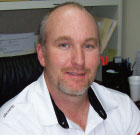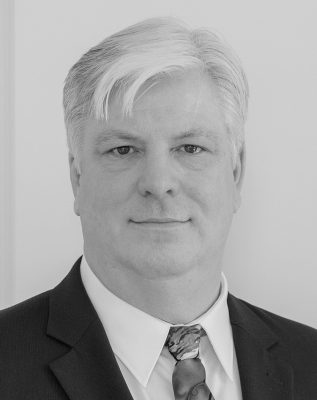Profile: Denis M. Poirier Jr., CFPAI/AJPP, CFPCC, CFPIHM

How did you begin your career in the fluid power industry?
I took my first technical course in hydraulics and electro-mechanical maintenance in 1989 while serving on active duty in the United States Navy. As a young sailor working in the ordnance field, I was afforded a very up-close and personal understanding of the true power of hydraulics. Over the next 22 years, I was able to refine my maintenance skills and ultimately put that experience to work as a military instructor teaching similar courses I had attended earlier in my naval career. The transfer from active duty military to industrial maintenance, management, and ultimately to the position as a senior training specialist with Eaton’s Hydraulics Group was a natural transition for me. When I consider the long relationship I have had with fluid power and mechanized equipment, I can’t imagine working in any other industry.
Why did you decide to pursue IFPS certification?
I am a strong proponent of lifelong learning. Whether it is through certification, technical training, or academia, continual education is a key part in maintaining relevancy in the workplace. As a professional trainer, certification sends a clear message to those within the industry that a neutral third party has validated my baseline skill-sets, both as an instructor and hydraulics professional.
What did you learn from the certification process?
As an individual degreed in Workforce Education, the mechanics of the certification process were easy for me to understand and accept. What may not be so apparent is that behind the scenes, there is a cyclic process-improvement model at work designed to continually capture and validate the core of what hydraulic industry professionals deem as the “priority skill-sets” within every level of certification.
How has the certification helped your career?
As a senior training specialist, certifying as an Accredited Instructor keeps me focused on industry priorities and sends a clear message to others about my level of commitment to provide the best training possible.
Why would you recommend others to become certified?
Certification provides third-party validation for a specific measure of understanding. This can be an important differentiator for some within the fluid power industry. Certification is a personal achievement, and as such, it stays with the individual in the event that they choose to leave an organization for another opportunity. Lastly, certification opens the door for comradery and professional interaction with others in the fluid power industry and can be useful for advice, assistance, and networking.
Who was most influential in your fluid power career?
I think many would agree it is hard to narrow down the list of all positive influencers an individual encounters within their working career. When I look back at my transition from the military to the civilian sector, as a training professional, one name stands out for me…that is Tom Blansett. Tom’s message to me was clear: be responsible, be accountable, and be honorable in all you do as a fluid power professional. I can’t imagine a better set of guiding principles.
What advice would you give to someone thinking about starting the IFPS certification process?
Focus on the certification that is most relevant to your professional skill-set. This provides the opportunity to maximize the transfer of information and the benefit of certification. As you continue working as a fluid power professional, consider certifications outside your comfort zone. This creates opportunity for increased understanding across the fluid power industry.
Where do you see the fluid power industry heading in the next 10 years?
As we move forward, I believe fluid power will continue to see growth in the “intuitive plug-and-play” electro-hydraulic applications. I would expect performance similar to how computer software evolved from the time when installing drivers and configuration settings were required to connect a new external printer, to where we are today, with a process that is as simple as plugging a printer to a USB port with the setup autonomous all by computer operating systems. This leap forward will require the understanding of fluid power in addition to a new type of leadership and engineering philosophy with strong backgrounds in electronics and networking in order to create that “next generation – total solution” concept.






